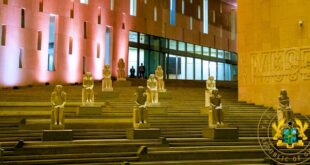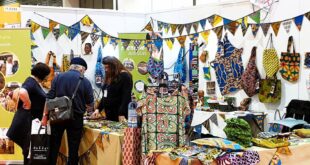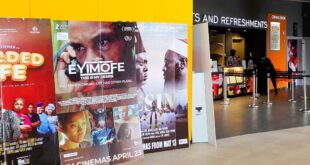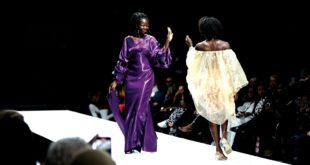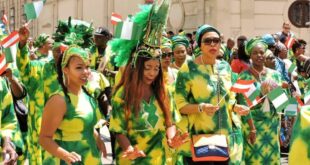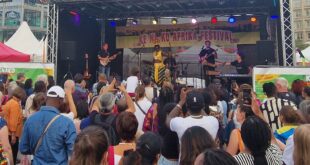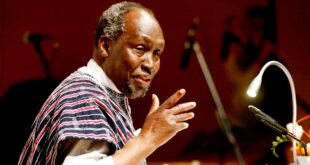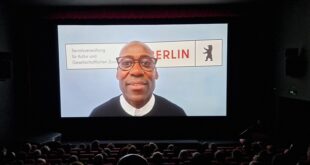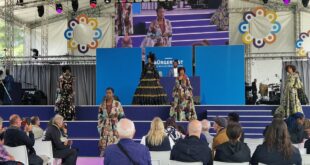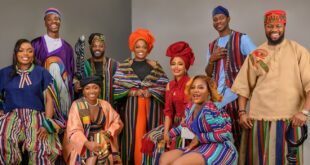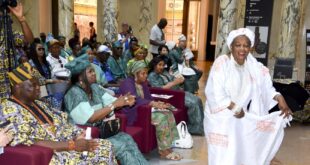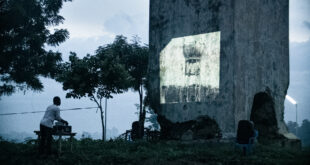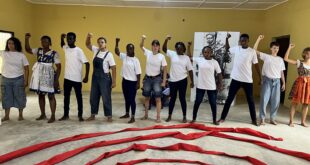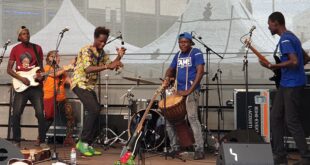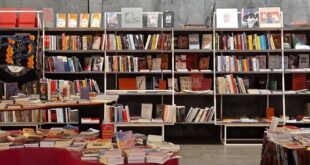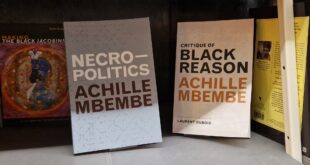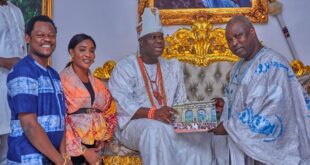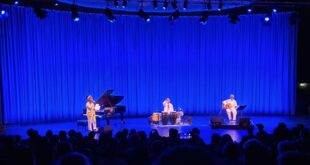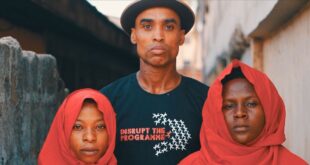Nigeria’s Wole Soyinka received the Nobel Prize for Literature in 1986. He was the first African writer to be honoured with the prestigious prize. Alexander Macbeth on how Soyinka’s Nobel has influenced the development of African literature 30 years on.
From Negritude to Afrofuturism (via Tigritude and Afrocentricity), the empire continues to write back. Africa is constantly reshaping her own previously distorted and desecrated image, and written words, like a distant echo boomeranging ever nearer, continue to heal the scars inflicted by hundreds of years of colonialism.
This pulsating pan-African echo, contemporary African literature, is built on the foundations of thousands of years of oral traditions; cultural systems, laws and moral values, shared and passed on from mango tree to village fire, from road to river, market to square, mouth to ear. From the jeli reciting the exploits of kings in West Africa, to the rhythms of Somali poetry, Africa can rightly claim to be the cradle of fables, the home of information and the heartbeat of narrative.
But in the mind of Nietzsche, Conrad, Brazzaville & Co, Africa was “the heart of darkness”, a place devoid of invention, pre-historic and regressive. Such racist delusions have slowly been deconstructed, and a more real depiction of Africa, fruitful and eclectic, has emerged from the ashes of European empires obsessed, according to the Martinician writer Aimé Césaire, with “monopolising all glory for their races”. Chinua Achebe, synonymous with the African novel, conveys the necessity of Africans to rephrase their history. “Until the lions produce their own historians,” wrote the Nigerian, “the story of the hunt will only glorify the hunter.”
It was not until 1986 that another Nigerian, arguably Africa’s greatest modern dramatist, was awarded the Nobel Prize for Literature. Wole Soyinka, lion of lions, “who in a wide cultural perspective and with poetic overtones fashions the drama of existence”, according to the Nobel Committee, had endured imprisonment and exile before the award, while his twenty-fold body of theatre continues to expose political injustice and corruption. But while recognition from the world’s leading literary award of Africa’s leading dramatist dispelled the myth of “an incapable Africa”, a number of other, and arguably more important blossoms have contributed to the development of African writing.
Soyinka’s Nobel Prize may have lit the torch, but others have been equally emphatic in carrying it. The award helped African literature to escape its own clichés and restrictions. Soyinka veered away from Negritude, quipping: “A tiger does not proclaim its tigritude”.
While early African writers shared the similar initial purpose of writing back at colonialism, contemporary writers bring diversifying and often contrasting perspectives of a complex and multifaceted African continent in their writing.
But Soyinka’s Nobel did prove to be the beginning of a new era of recognition for African writers on a global stage. It is almost difficult to talk of African literature as a genre today, so diverse is its output. Ben Okri’s The Famished Road, an enchanting magic realist tale from Nigeria, claimed the 1991 Booker Prize for its poetic prose. Nuruddin Farah, the exiled Somali novelist who writes of his nation “as an orphaned child”, was awarded the Neustadt International Prize for Literature in 1998. Helon Habila, of Nigeria, emerged with the biopic Measuring Time, while Mia Couto’s deliciously lyrical The Last Flight of The Flamingo is an equal masterpiece of magic realism to any I have read.
But even before Soyinka won the Nobel, the questions of language and audience were being widely debated across the continent. Achebe had resigned himself to “the fatalistic logic of the unassailable position of English in our literature”. But many new and older writers were electing to write in their indigenous language. Ngugi Wa Thiong’o, author of Matigari and Devil on the Cross, wrote both novels in Kikuyu, abandoning English, the language of the coloniser, to ensure that his novels were read in Kenya. The code switch was a success; Devil on the Cross sold more than 50,000 copies and is regarded as a landmark in indigenous language literature.
But in the past 25 years there has also been a change in who is writing; women have come to the fore. From Dangarembga’s 1987 Zimbabwean classic Nervous Conditions to Cameroonian Calixthe Beyala’s raw and powerful The Sun Hath Looked Upon Me, women continue to excel in the field of African writing.
While Bessie Head and Mariama Bâ pioneered an African feminism, early waves of Lusophone, Francophone and English-language literature were dominated by men such as Sembène, Kourouma, Hampâté Bâ, Achebe, Armah and Marechera. However, Fatou Diome, the gifted author of The Belly of the Atlantic and a disciple of the mercurial Sembene Ousmane, now carries the mantle of Senegalese literature. She echoes his mantra (Diome worked with Sembene before his death in 2007): “Let us not doubt, let us make the future.”
Women are narrating the future, or the past for that matter, for the present time. Aminatta Forna’s autobiographical The Devil that Danced on the Water announced another great writer from Sierra Leone, home to the wonderful poet Syl Cheney-Coker. In Nigeria, a young girl took the literary world by storm with her posed debut, Purple Hibiscus. Chimamanda Ngozi Adichie, one of the youngest and most gifted writers on the continent, followed up her debut with Half of a Yellow Sun, a Nigerian civil war epic.
In Ghana, meanwhile, the creative tax collector Amma Darko expanded the linguistic field of Africa’s expression, publishing Beyond The Horizon (Der VerkaufteTraum). In Uganda, Monica Arac de Nyeko, winner of the 2007 Caine Prize, is a young talent to watch in the future.
In the past ten years Achebe’s lions have not only started their own publishing houses, they have broadened the savannah and our understanding of it. The pack has continued to grow, globetrotting with diverse narratives. The Internet means that any author can circumnavigate traditional publishing houses, earn revenue and even create large fan bases online. E C Osundu, for example, won the 2009 Caine Prize for his story Waiting, first published on Guernicamag.com.
Founded in 2001 to reward “the richness and diversity” of African writing, the Caine Prize itself has provided an annual platform to recognise African writing and ensure its continued development. The Prize serendipitously gave rise to other initiatives. Binyavanga Wainaina, winner of the 2002 Caine Prize, went on to found Kwani, now Africa’s leading literary review.
Along with new publishing houses such as Serpent’s Tail propelling African writers, African literature is beginning to have more infrastructure. The internet also facilitates the exchange of information between African studies faculties and databases worldwide, but more importantly, social mediums such as Twitter transcend the traditional publishing barriers, giving each and every African with access to the internet a voice.
But the greatest challenge remains building the local market and thus the readership. “If a book is not on the school curriculum,” says Walter Bgoya, founder of Mkuki Na Nyota, an independent publisher in Tanzania, “publishers won’t publish it.” The logic is straightforward: a book’s selection in the national curriculum of a country guarantees sales. And sales cannot be guaranteed without the readership’s buying power. With many African citizens living in extreme poverty, literature is often relegated to a priority for more prosperous times, while education is regarded as a necessity.
Without the curriculum validating a book, a writer will often be condemned to self-publication. Notwithstanding, Macmillan East Africa has reported a growth in book sales in Kenya in recent years and when I visited Nouvelles Editiones Africaines in Senegal’s capital Dakar, the management were keen to show off a portfolio of more than 35 books
Translation still remains a headache, one that perpetuates colonial divisions and prevents African literature from becoming a cohesive pan-African movement. While the UK celebrates Nigerian, Kenyan and Zimbabwean novelists who write in English, France endorses Francophone authors from Senegal, Côte d’Ivoire and Mali. The result is that colonial ties between colonised and ex-coloniser are perpetuated, while the linguistic barriers that divide Africa are reinforced.
Even if translations of classics exist, one might suggest that each ex-colonial power displays a narcissistic interest in sponsoring intellectuals from their own ex-colonies, excluding pan-African appreciation and readership. While publishers such as Serpent’s Tail and Editions Présence Africaine continue to commission translations, ensuring that Wa Thiong’o is read in Mali and Kourouma in Kenya, further investment in translation remains one of the strongest challenges African literature must overcome. US pan-African faculties may prove to be a key player in this process.
Meanwhile, Soyinka remains the only Sub-Saharan Black African to have been awarded the Nobel Prize for Literature. While J M Coetzee and Nadine Gordimer of South Africa subsequently received the Nobel Prize for their writings, as did Naguib Mahfouz of Egypt, other Black African writers such as Farah, the late Achebe and Hampâté Bâ have been overlooked. But the legacy left by an armaments manufacturer cannot qualify the self-charting of the world’s most complex and brutalised continent. In the words of Hampâté Bâ, “In Africa when an old man dies, a library is burnt down.” It is only a matter of time before the depth of African experience propels a library of Nobel Laureates.
 THE AFRICAN COURIER. Reporting Africa and its Diaspora! The African Courier is an international magazine published in Germany to report on Africa and the Diaspora African experience. The first issue of the bimonthly magazine appeared on the newsstands on 15 February 1998. The African Courier is a communication forum for European-African political, economic and cultural exchanges, and a voice for Africa in Europe.
THE AFRICAN COURIER. Reporting Africa and its Diaspora! The African Courier is an international magazine published in Germany to report on Africa and the Diaspora African experience. The first issue of the bimonthly magazine appeared on the newsstands on 15 February 1998. The African Courier is a communication forum for European-African political, economic and cultural exchanges, and a voice for Africa in Europe.


